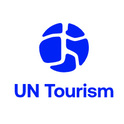Tourism Takes Action On Plastic Waste And Pollution
Tourism businesses and destinations are stepping up their commitment to sustainability. Aimed at reducing waste and pollution across the sector, the Global Tourism Plastics Initiative (GTPI) is welcoming 32 new signatories, with every global region represented behind the shared goal.
The Initiative unites the tourism sector behind a common vision to address the root causes of plastic pollution. It enables businesses, governments and other tourism stakeholders to lead by example in the shift towards a circular economy of plastics. Among the 32 new signatories are organizations such as TUI Group, AC Hotels by Marriott, Palladium Hotel Group, Sustainable Hospitality Alliance, Hostelling International, Thompson Okanagan Tourism Association and Visit Valencia. These new additions bring the total number of signatories up to 93 companies and organizations. These include organizations from stages of the tourism value chain, including accommodation providers, tour operators, online platforms, suppliers, waste managers and supporting organizations.
Andreas Vermöhlen, Manager for Sustainability, Circular Economy and Sustainable Development at TUI Group said: “Together we can make important steps towards less unnecessary single-use plastic in the world and shift towards a circular economy.”
To mark the confirmation of the new signatories, UNWTO and the United Nations Environment Programme, in collaboration with the Ellen MacArthur Foundation, held a special panel discussion with the theme Eliminate. Innovate. Circulate. Strategies from the Global Tourism Plastics Initiative. Participants included Accor Group, The Hongkong and Shanghai Hotels, Palladium Hotel Group, Chumbe Island Coral Park and the Sustainable Hospitality Alliance.
Zurab Pololikashvili, UNWTO Secretary-General said: “Addressing plastic pollution is essential to sustainably restart tourism, preserve destinations and contribute to climate action. We are proud to see the number of signatories growing continuously since the launch of the initiative.”
Alongside this, a keynote presentation on “A Life Cycle Approach – Key messages for tourism businesses” further highlighted the aims of the GTPI, with a special focus on innovation and the importance of context-based approaches to ensure plastics are circulated back into the economy rather than thrown away after use.
About UN Tourism
The World Tourism Organization (UN Tourism) is the United Nations agency responsible for the promotion of responsible, sustainable and universally accessible tourism.
As the leading international organization in the field of tourism, UN Tourism promotes tourism as a driver of economic growth, inclusive development and environmental sustainability and offers leadership and support to the sector in advancing knowledge and tourism policies worldwide.
Our Priorities
Mainstreaming tourism in the global agenda: Advocating the value of tourism as a driver of socio-economic growth and development, its inclusion as a priority in national and international policies and the need to create a level playing field for the sector to develop and prosper.
Promoting sustainable tourism development: Supporting sustainable tourism policies and practices: policies which make optimal use of environmental resources, respect the socio-cultural authenticity of host communities and provide socio-economic benefits for all.
Fostering knowledge, education and capacity building: Supporting countries to assess and address their needs in education and training, as well as providing networks for knowledge creation and exchange.
Improving tourism competitiveness: Improving UN Tourism Members' competitiveness through knowledge creation and exchange, human resources development and the promotion of excellence in areas such as policy planning, statistics and market trends, sustainable tourism development, marketing and promotion, product development and risk and crisis management.
Advancing tourism's contribution to poverty reduction and development: Maximizing the contribution of tourism to poverty reduction and achieving the SDGs by making tourism work as a tool for development and promoting the inclusion of tourism in the development agenda.
Building partnerships: Engaging with the private sector, regional and local tourism organizations, academia and research institutions, civil society and the UN system to build a more sustainable, responsible and competitive tourism sector.
Our Structure
Members: An intergovernmental organization, UN Tourism has 160 Member States, 6 Associate Members, 2 Observers and over 500 Affiliate Members.
Organs: The General Assembly is the supreme organ of the Organization. The Executive Council take all measures, in consultation with the Secretary-General, for the implementation of the decisions and recommendations of the General Assembly and reports to the Assembly.
Secretariat: UN Tourism headquarters are based in Madrid, Spain. The Secretariat is led by the Secretary-General and organized into departments covering issues such as sustainability, education, tourism trends and marketing, sustainable development, statistics and the Tourism Satellite Account (TSA), destination management, ethics and risk and crisis management. The Technical Cooperation and Silk Road Department carries out development projects in over 100 countries worldwide, while the Regional Departments for Africa, the Americas, Asia and the Pacific, Europe and the Middle East serve as the link between UN Tourism and its 160 Member States. The Affiliate Members Department represents UN Tourism's 500 plus Affiliate members.
UN Tourism Communications Department
+34 91 567 8100
UN Tourism
